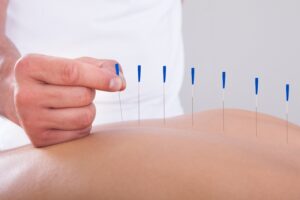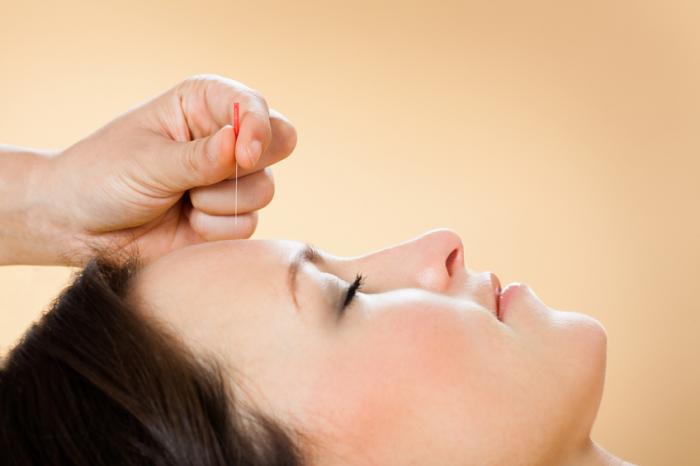Hot flashes, characterized by sudden and intense feelings of heat, sweating, and flushing, are a common symptom experienced by many women during menopause. While hormonal changes are the primary culprit, the quest for effective and holistic remedies has led individuals to explore alternative therapies. One such ancient practice that has gained attention for its potential in managing hot flashes is acupuncture. In this blog post, we will delve into the intricacies of acupuncture and its role in alleviating hot flashes.
Contents
What are Menopausal Hot Flashes?
Menopausal hot flashes, also known simply as hot flashes or hot flashes, are a common and often bothersome symptom experienced by many women as they go through menopause. Menopause is a natural biological process that marks the end of a woman’s reproductive years. It is typically occurring in their late 40s to early 50s. It is officially diagnosed when a woman has gone without a menstrual period for 12 consecutive months.
A sudden sensation of heat characterizes hot flashes, typically felt in the upper body, face, and neck. They can be accompanied by flushing (reddening of the skin), sweating, and an increased heart rate. The intensity and frequency of hot flashes can vary from woman to woman, with some experiencing occasional mild episodes, while others may have more severe and frequent occurrences.
What is “Acupuncture for Hot Flashes”?

“Acupuncture for hot flashes” refers to the use of acupuncture, a traditional Chinese medicine technique, as a therapeutic approach to manage and alleviate hot flashes experienced by women during menopause. Acupuncture involves the insertion of thin needles into specific points on the body, known as acupuncture points, to restore the balance of energy, or Qi, in the body.
Here’s an overview of how acupuncture may be used for managing hot flashes:
1. Acupuncture Points:
- Acupuncturists target specific acupuncture points that are believed to be associated with the body’s energy pathways or meridians. The selection of points may vary based on the individual’s symptoms and overall health.
2. Regulating Qi and Blood Flow:
- The underlying principle of acupuncture is to restore the balance of Qi, the vital energy believed to flow through the body’s meridians. By inserting needles into specific points, acupuncturists aim to regulate the flow of Qi and improve the overall balance of energy.
- Additionally, acupuncture is thought to influence blood flow, promoting circulation and potentially affecting the hormonal and physiological processes associated with hot flashes.
3. Modulation of the Autonomic Nervous System:
- Acupuncture has been suggested to influence the autonomic nervous system (ANS), which plays a role in regulating various bodily functions, including temperature control. By modulating the ANS, acupuncture may impact the frequency and severity of hot flashes.
How Does Acupuncture for Hot Flashes Work?
The precise mechanisms through which acupuncture works for hot flashes are not fully understood, and research in this area is ongoing. However, several theories and observations have been proposed to explain how acupuncture may help alleviate hot flashes in women experiencing menopause. It’s important to note that individual responses to acupuncture can vary, and the following explanations are based on current research and traditional Chinese medicine principles:
- Regulation of Hormones: One hypothesis is that acupuncture may influence hormonal levels, particularly estrogen. As women go through menopause, estrogen levels decline, contributing to the onset of hot flashes. Acupuncture is thought to stimulate the release of certain hormones. These are such as beta-endorphins, which could play a role in hormonal regulation.
- Improvement of Blood Circulation: Acupuncture is thought to enhance blood circulation throughout the body. Improved blood flow may positively impact the hormonal and physiological processes associated with hot flashes. By promoting better circulation, acupuncture may contribute to the overall well-being of individuals experiencing menopausal symptoms.
- Stress Reduction and Endorphin Release: Stress and emotional factors can exacerbate hot flashes. Acupuncture has been associated with stress reduction and the release of endorphins, the body’s natural painkillers. Furthermore, by promoting a sense of relaxation and well-being, acupuncture may help manage the emotional aspects of menopausal symptoms, including hot flashes.
- Brain Activity and Neurotransmitters: Acupuncture has been observed to influence brain activity and the release of neurotransmitters. Furthermore, these effects may play a role in regulating the perception of symptoms, including the sensation of heat associated with hot flashes.
- Placebo Effect: Some researchers suggest that the benefits of acupuncture, including its effects on hot flashes, may be partially attributed to the placebo effect. Belief in the efficacy of the treatment and positive expectations can influence the perception of symptoms and contribute to a sense of improvement.
Benefits of Acupuncture for Hot Flashes

Acupuncture for hot flashes has been associated with several potential benefits. This offers relief and improvement in the experience of menopausal symptoms. While individual responses can vary, the following effects are commonly observed:
- Reduced Frequency and Severity: Acupuncture has been linked to a reduction in the frequency and severity of hot flashes. Many individuals report experiencing milder and less frequent episodes after undergoing acupuncture treatments.
- Improved Sleep Quality: Hot flashes, particularly night sweats, can disrupt sleep patterns during menopause. Acupuncture has been associated with improvements in sleep quality, helping individuals achieve more restful and uninterrupted sleep.
- Enhanced Emotional Well-Being: Menopausal symptoms, including hot flashes, can be emotionally challenging. Acupuncture is thought to promote a sense of relaxation and reduce stress, contributing to improved emotional well-being and a more positive outlook during this transitional phase.
- Alleviation of Associated Symptoms: Beyond addressing hot flashes directly, acupuncture may provide relief from other symptoms associated with menopause, such as mood swings, anxiety, and irritability. The holistic approach of acupuncture considers the overall balance of the body and mind.
- Positive Impact on Quality of Life: By reducing the intensity and frequency of hot flashes and addressing related symptoms, acupuncture can contribute to an overall improvement in the quality of life. This is for women going through menopause.
- Non-Invasive and Minimal Side Effects: Acupuncture is a non-invasive therapy that involves the gentle insertion of thin needles. Compared to some pharmaceutical interventions, acupuncture is generally well-tolerated, with minimal side effects reported.
- Complementary Approach: Acupuncture is often used as a complementary therapy alongside conventional medical treatments. Its integrative nature allows individuals to combine different approaches for a more comprehensive and personalized management of menopausal symptoms.
- Individualized Treatment Plans: Acupuncture is tailored to the individual, considering their unique pattern of symptoms, overall health, and lifestyle. Furthermore, this personalized approach allows for a targeted and effective strategy for managing hot flashes.
- Potential Hormonal Modulation: While the exact mechanisms are not fully understood, acupuncture is believed to influence hormonal balance. This modulation may play a role in mitigating the hormonal fluctuations associated with hot flashes.
- Promotion of General Well-Being: Beyond symptom management, acupuncture aims to promote overall well-being. Furthermore, many individuals undergoing acupuncture for hot flashes report feeling a sense of balance, vitality, and improved energy levels.
Sources To Get Help for Hot Flashes

Finding services for managing hot flashes, especially through online providers, involves exploring various platforms and directories. Here are some online sources where you can find licensed acupuncturists offering services to address hot flashes:
- HerMantra: HerMantra provides virtual consultations and guidance. You can connect with licensed acupuncturists who may assist in managing hot flashes and related symptoms.
- Sage Tonic: Sage Tonic offers virtual sessions with licensed acupuncturists. Their services are designed to address various health concerns, including menopausal symptoms like hot flashes.
- The Shift: The Shift is an online platform connecting users with licensed practitioners, including acupuncturists. You can explore virtual sessions to address menopausal symptoms, specifically hot flashes.
- MindBody: MindBody is a wellness platform that allows you to search for acupuncture services based on your location or specific health needs. Furthermore, some practitioners may offer virtual sessions to manage hot flashes.
- National Certification Commission for Acupuncture and Oriental Medicine (NCCAOM): Description: NCCAOM provides a directory of licensed acupuncturists. Use their search feature to find practitioners specializing in women’s health, including the management of hot flashes.
- American Association of Acupuncture and Oriental Medicine (AAAOM): AAAOM offers a directory of licensed acupuncturists. Use their search feature to find practitioners with expertise in addressing menopausal symptoms, particularly hot flashes.
- Telehealth Platforms (e.g., Amwell, Teladoc): Some telehealth platforms connect users with licensed acupuncturists for virtual sessions. Platforms like Amwell and Teladoc may have practitioners who specialize in guiding on managing hot flashes through acupuncture.


